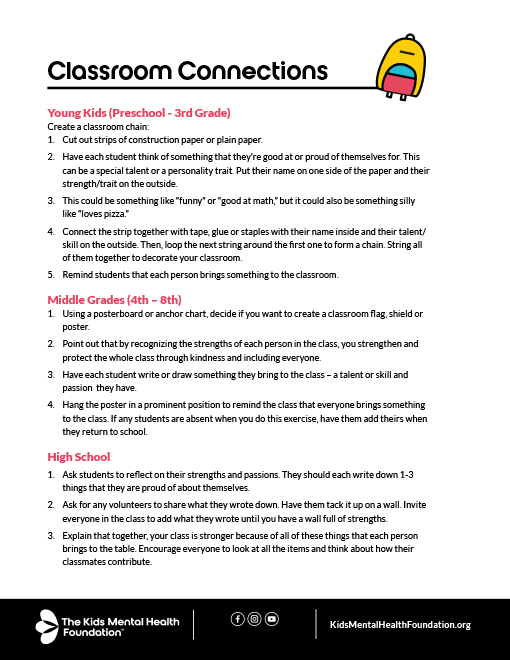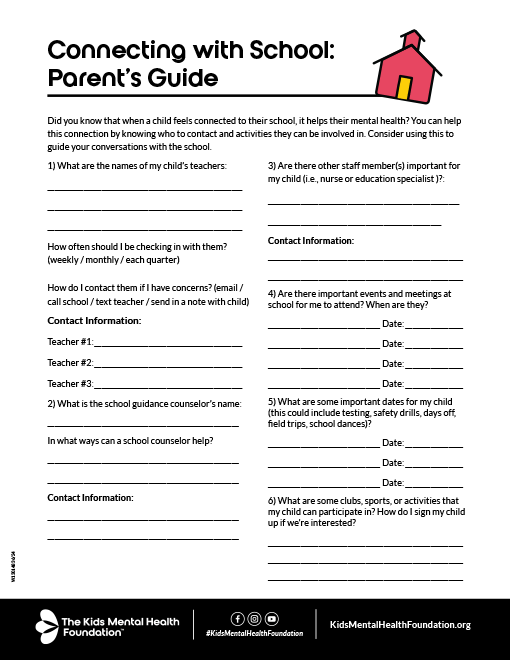- Getting to know your class and encouraging students to get to know one another can improve classroom belonging.
- Asking open-ended questions can be a great way to get everyone to share.
- While you can encourage all students to participate, try to avoid making a student answer a question they’re not comfortable with.
Boosting School Connection Improves Kids’ Mental Health
Article Summary
School belonging is one of the best ways we can help protect our children’s mental health as they navigate these stressors during back-to-school season.
- Feeling a sense of connection at school has many mental health benefits for kids
- Parents can help children by getting more involved with their child’s school
- Teachers can increase a sense of belonging for the whole class
Academic stress. School safety. Racism. Truancy. Difficulty making friends.
School belonging is one of the best ways we can help protect our children’s mental health as they navigate these stressors during back-to-school season.
The Positive Mental Health Effects of School Belonging
School belonging, or feeling connected at school, has many positive mental health benefits for kids. Those include:
- Improve academic performance
- Increase engagement in schoolwork
- Increase feelings of happiness and self-confidence
- Decrease feelings of loneliness, anxiety and depression
- Decrease risky behaviors like substance use or violence
This impact is especially true for Black, immigrant, and LGBTQ children who are at higher risk for feeling like they do not belong to their school community.
How We Can Help
The good news is that parents, teachers and other adults can help increase the feeling of school belonging in children.
Parents can help enhance school belonging.
- Learn about the school: Take the time to learn about your child’s school environment, along with the staff. This helps model the importance of school connection to your child and it will be helpful if you become concerned about your child’s academic performance, because you will be better prepared to work together to help your child.
- Attend school events: Show up to school events when possible to help increase your family’s belonging to the school community.
- Encourage extracurricular activities: Support your child’s participation in activities outside of school. Extracurricular activities can build relationships with peers with similar interests and help them feel like an important part of their school.
- Have daily check-ins: Talk to your child about their day and the adults and kids they interact with to show your child you care about their daily experiences.
Teachers play a huge role in creating a sense of community in the classroom so kids feel like the belong:
- Encourage conversations: Have conversations where the class gets to know one another to help students feel connected. Use these conversation starters to get started.
- Insight into social dynamics: Teachers have special insights into how children interact with and are treated by their peers. Create situations in the classroom that can encourage peer connections and empower students to feel like they are special and belong. Teachers can also have important discussions about bullying and kindness to encourage an inclusive environment.
School leadership can ensure that their school culture is as inclusive and safe for all children. This is especially important when it comes to how schools implement discipline since we know that children of underrepresented backgrounds tend to receive more severe punishments than others.
We want all children to reach their full potential academically and socially, but obstacles will happen. By helping them feel like they belong, are connected and valued, we build their resiliency for facing challenges.
 Copy Link
Copy Link





